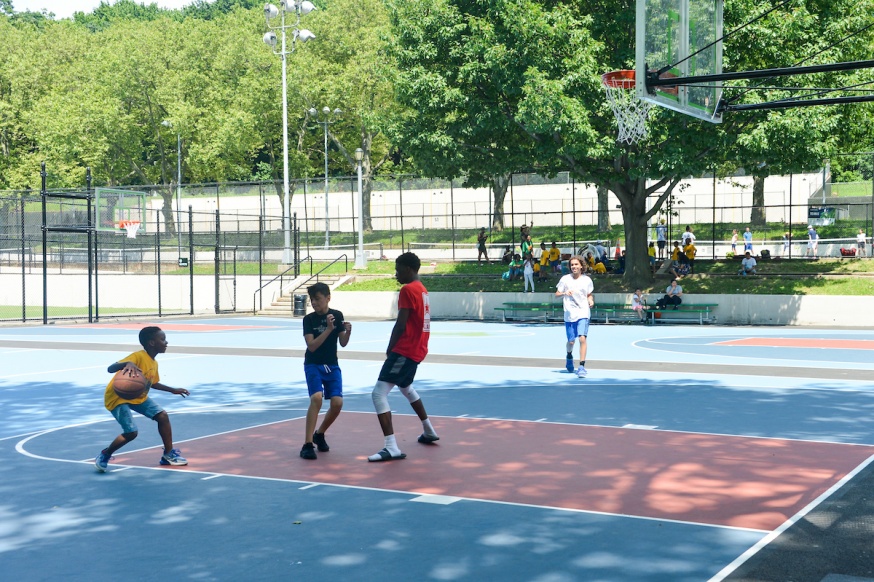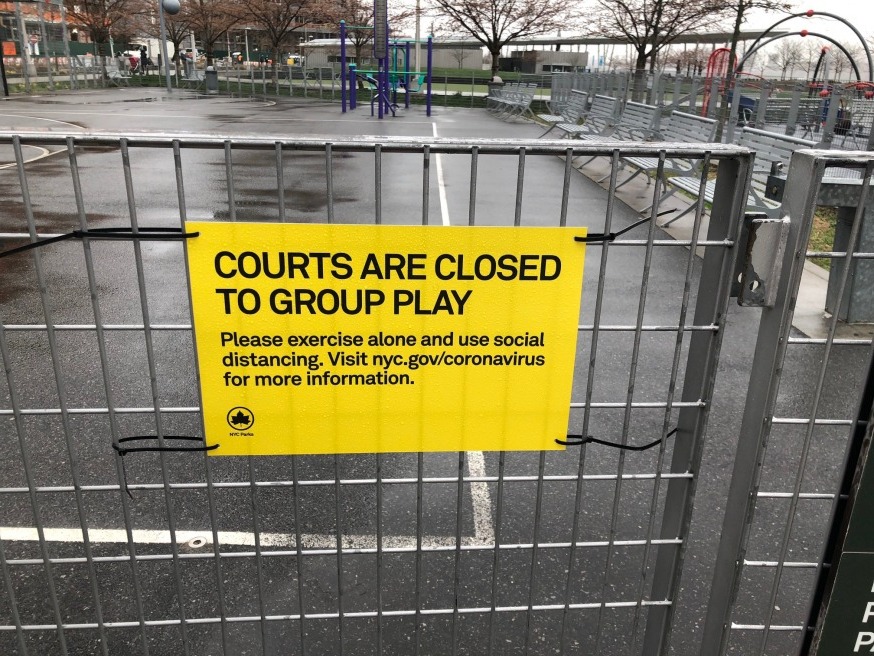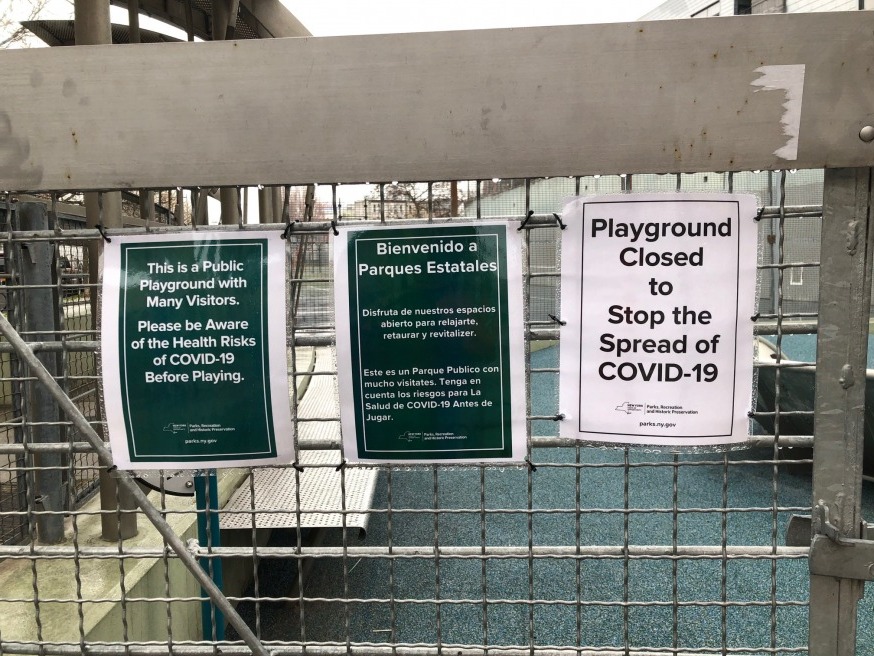
Basketball courts at Highland Park. The City is banning basketball games at parks in light of the coronavirus
(Photo: NYC Parks/Daniel Avila)
March 25, 2020 By Allie Griffin
New York City parks and playgrounds will continue to remain open — as long as people adhere to social distancing rules and avoid group sports, Governor Andrew Cuomo said today.
Cuomo asked the City Council and Mayor Bill de Blasio to come up with a plan to patrol city parks after he visited the Big Apple over the weekend and saw groups of people congregating and playing sports, like basketball, inside the parks.
“The New York City parks have been a problem,” the governor said at a press conference in Albany today. “I saw the problem myself firsthand.”
He gave city officials 24 hours over the weekend to come up with a plan — which he has now signed off on it.
The city has banned group activities like barbeques and basketball, as well as organized sports in its parks. It is urging the public to observe social distancing requirements and not to congregate. He said that the NYPD will patrol parks and issue warnings to those who disobey the rules.
He said playgrounds will remain open and he is asking parents to keep their children six feet apart from other kids.
The mayor will reassess the situation Saturday and said he will close the playgrounds if New Yorkers are not abiding by the rules.

New York City Parks Dept., which has banned group play at basketball courts (Photo: Hunters Point South Park in Long Island City)
“If people follow those rules, my hope is the playgrounds stay open,” de Blasio said yesterday at a City Hall conference. “If they don’t follow the rules, most assuredly, the playgrounds will be shut and we will make that decision by Saturday evening.”
The city will also close two streets off to traffic — per borough — and open them up to pedestrians as part of a pilot program it’s launching Thursday. The DOT has not yet announced the streets that will be shut down.
“The plan is going to pilot closing streets in New York City because we have much less traffic in New York City,” Cuomo said. “Open the streets. People want to walk, you want to go out and get some air. You want a less dense area, so pilot closing streets to cars, opening streets to pedestrians.”
Members of the NYPD and other city agencies will patrol both the parks and streets and give warnings to people who are not adhering to proper social distancing protocols.
De Blasio is urging residents to follow the rules when they head to parks.
“We’ll have some warmer days coming up. We’ll have a chance to see if people have gotten the message,” de Blasio said yesterday. “We will be doing all the enforcement, but if by the end of Saturday, it is not sufficiently clear that New Yorkers are following these new rules, at that point we’ll be prepared to shut down playgrounds for the foreseeable future.”
Cuomo reiterated the necessity to listen to the rules today.
“No close-contact sports in a playground — no basketball, for example. You cannot do it,” he said sternly. “We’re asking people to do that on a voluntary basis — if there is noncompliance with that, we will then make it mandatory and we will actually close the playgrounds.”
The state closed the playgrounds it administers on Saturday. The only state-run playgrounds in Queens and Brooklyn are in Long Island City. These were closed — along with the basketball courts and athletic field nearby.

A children’s playground in Long Island City that was shut down on Saturday. It is administered by New York State (Queens Post)
